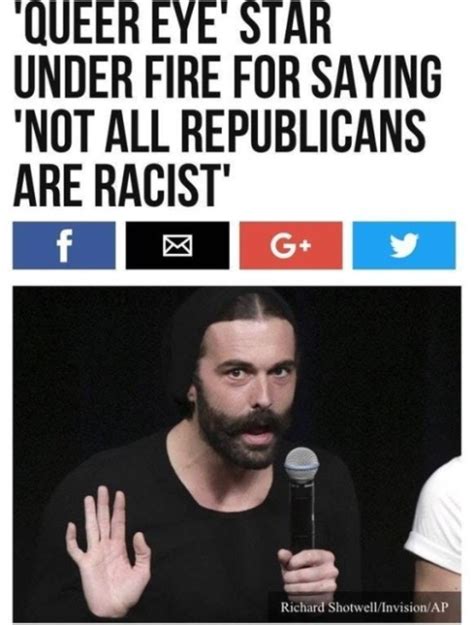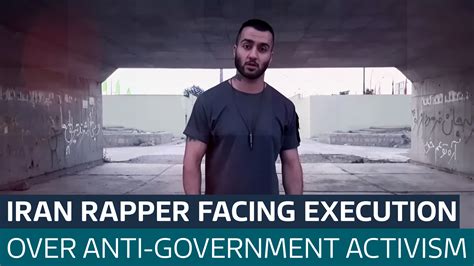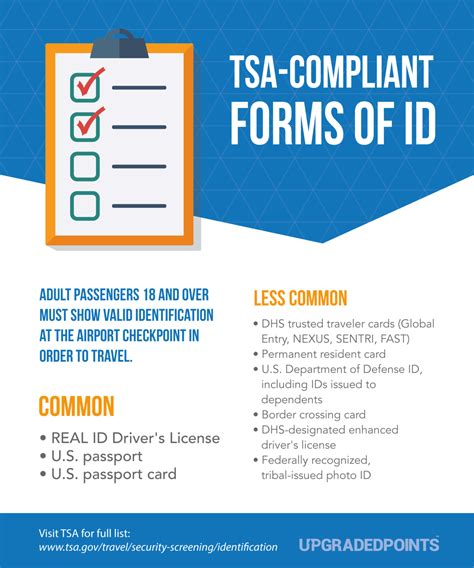
A series of ill-advised and controversial social media posts from various political figures have ignited public outrage and sparked widespread criticism, highlighting the potential for a single tweet to severely damage reputations and derail careers. These incidents, ranging from insensitive remarks to factually incorrect statements, underscore the importance of careful consideration before posting on platforms with global reach.
Political figures are increasingly finding themselves in hot water due to their activity on social media, demonstrating the potent consequences of impulsive or poorly considered online communication. The missteps, chronicled across various platforms, reflect a broader challenge for individuals in the public eye navigating the immediacy and permanence of digital discourse.
One prominent example cited involves Representative Marjorie Taylor Greene, who faced backlash for comparing COVID-19 safety measures to the Holocaust. “Marjorie Taylor Greene once compared COVID-19 mask mandates and vaccine requirements to the Holocaust,” the Yahoo article notes. This comparison drew widespread condemnation and calls for her resignation. Similarly, Senator Ted Cruz faced intense scrutiny for fleeing to Cancun, Mexico, during a severe winter storm that left millions of Texans without power. The optics of the trip, as reported, “didn’t sit right with voters,” compounding the already dire situation in his home state.
Former President Donald Trump’s prolific use of Twitter also features prominently, with his numerous controversial tweets highlighted as examples of how quickly a political figure can create a public relations crisis. His tweets often stirred controversy, and these online actions had tangible repercussions, including fueling political polarization.
These incidents underscore the dangers of unverified information, the necessity of sensitivity in addressing complex issues, and the critical importance of understanding the potential impact of online communication. As the digital landscape continues to evolve, these cautionary tales serve as reminders for political figures to exercise prudence and diligence in their online interactions.
Detailed Examples of Political Tweet Fails
The article identifies several instances where political figures stumbled on social media, leading to public backlash and reputational damage. Each example offers a lesson in the pitfalls of online communication and the need for careful consideration before posting.
-
Marjorie Taylor Greene: Greene’s comparison of COVID-19 mask mandates to the Holocaust sparked widespread outrage. According to the Yahoo article, “Marjorie Taylor Greene once compared COVID-19 mask mandates and vaccine requirements to the Holocaust.” This comment was widely condemned and resulted in calls for her removal from congressional committees. It illustrates the importance of sensitivity when discussing historical events and the potential for seemingly innocuous comparisons to be deeply offensive.
-
Ted Cruz: Senator Cruz’s trip to Cancun during a severe winter storm in Texas was a major public relations disaster. The article notes, “When a winter storm left millions of Texans without power, Ted Cruz decided to take a family vacation to Cancun, Mexico.” This decision was perceived as tone-deaf and uncaring, damaging his reputation among constituents and beyond. It highlights the importance of being present and responsive during times of crisis.
-
Donald Trump: The former president’s use of Twitter was often controversial. His tweets covered a wide range of topics, from policy announcements to personal attacks. Many of these tweets were criticized for being inflammatory, inaccurate, or disrespectful. “Trump’s Twitter feed was a constant source of controversy during his presidency,” the article suggests. It demonstrates the potential for social media to amplify both positive and negative messages and the importance of responsible communication.
-
Anthony Weiner: While not a recent example, Weiner’s sexting scandals, initially revealed via Twitter, serve as a cautionary tale about the potential for social media to expose personal indiscretions. “Anthony Weiner’s career imploded after a series of sexting scandals that originated on Twitter,” the article recalls. This highlights the importance of maintaining privacy and discretion in online communications.
-
Gilbert Gottfried: The late comedian Gilbert Gottfried faced swift backlash and job loss after posting insensitive jokes about the 2011 Japanese tsunami on Twitter. This incident underscores the potential for humor to misfire spectacularly on social media, especially when dealing with sensitive topics or tragedies. While Gottfried was known for his edgy humor, the context and timing of his tweets were deemed inappropriate, leading to immediate consequences.
-
Roseanne Barr: Roseanne Barr’s racist tweet about Valerie Jarrett led to the cancellation of her television show and a significant blow to her career. The tweet, which compared Jarrett to an ape, was widely condemned as racist and unacceptable. “Roseanne Barr’s racist tweet about Valerie Jarrett led to the cancellation of her show,” the article states. This highlights the potential for social media to amplify harmful stereotypes and the importance of combating racism in all its forms.
-
Justine Sacco: Before becoming widely known, Justine Sacco’s ill-considered tweet before boarding a flight to South Africa went viral while she was in the air, resulting in immediate job loss. Her tweet, which made a flippant remark about race, was seen as deeply offensive and insensitive. The incident serves as a stark reminder that even seemingly innocuous comments can have serious consequences in the age of social media.
-
Kevin Spacey: While not exclusively Twitter-related, Kevin Spacey’s attempt to address allegations of sexual misconduct with an awkward statement on Twitter was widely criticized. The statement, which included a deflection and an admission of homosexuality, was seen as insensitive and self-serving. It highlights the importance of addressing serious allegations with sincerity and respect for victims.
-
Kenneth Cole: In 2011, Kenneth Cole tweeted insensitively regarding unrest in Cairo, using the situation to promote his brand. The tweet was swiftly criticized for being opportunistic and trivializing a serious political situation. Cole later apologized, but the incident serves as an example of how brands and individuals can misstep when attempting to capitalize on current events.
-
Numerous Politicians and Misinformation: The article implicitly highlights the broader issue of politicians spreading misinformation and conspiracy theories on social media, contributing to political polarization and eroding public trust. This includes instances of sharing fake news, promoting unsubstantiated claims, and engaging in personal attacks.
-
Brendan Eich: Brendan Eich, the former CEO of Mozilla, was forced to step down after outrage erupted over his past donation to a campaign supporting a ban on same-sex marriage. While not a direct tweet, the controversy surrounding his political views, amplified through social media, demonstrates the potential for past actions to resurface and impact careers.
-
Curt Schilling: Curt Schilling, a former MLB pitcher, was fired from ESPN after sharing controversial political views on social media. His posts, which included offensive comments about transgender people and Muslims, were deemed unacceptable by the network. The incident underscores the potential for personal opinions expressed online to have professional repercussions.
-
Sarah Palin: Sarah Palin, a former governor of Alaska and vice-presidential candidate, has been known for her outspoken views and sometimes controversial statements on social media. Her posts have often generated significant attention and debate, highlighting the power of social media to amplify political messages.
-
Dan Bongino: Dan Bongino, a conservative political commentator and radio host, has a strong presence on social media and is known for his controversial views. His posts often generate significant debate and criticism, demonstrating the potential for social media to amplify divisive messages.
-
Laura Loomer: Laura Loomer, a far-right activist and political commentator, has been banned from numerous social media platforms for violating their terms of service. Her posts, which often contain hate speech and misinformation, have been widely condemned. The incident underscores the potential for social media platforms to be used to spread harmful content and the importance of content moderation policies.
-
Candace Owens: Candace Owens, a conservative commentator, has often used her social media platforms to express controversial opinions on various topics, including race and politics. Her statements have sparked significant debate and criticism, highlighting the power of social media to amplify diverse viewpoints, both positive and negative.
-
Alex Jones: Alex Jones, known for spreading conspiracy theories, has frequently used social media to disseminate false information and harmful narratives. While largely deplatformed, his past use of social media underscores the dangers of allowing the spread of misinformation and the importance of combating it effectively.
-
Many Others: The Yahoo article implies that countless other instances of political tweet fails exist, illustrating a pervasive problem in the digital age. The constant scrutiny and immediate feedback provided by social media platforms create a high-pressure environment for political figures.
Underlying Themes and Lessons Learned
Several key themes emerge from these examples of political tweet fails. These incidents underscore the importance of:
-
Sensitivity and Empathy: Political figures must be sensitive to the diverse perspectives and experiences of their constituents. Insensitive or offensive comments can quickly lead to public backlash and reputational damage.
-
Accuracy and Verification: It is crucial to verify information before sharing it on social media. Spreading misinformation can erode public trust and have serious consequences.
-
Professionalism and Discretion: Political figures should maintain a level of professionalism and discretion in their online communications. Personal attacks, inflammatory language, and inappropriate content can damage their credibility and effectiveness.
-
Responsibility and Accountability: Political figures are responsible for the content they share on social media. They must be held accountable for their words and actions.
-
Understanding the Platform: Each social media platform has its own culture and norms. Political figures should understand these nuances before engaging online.
-
Thinking Before Posting: The immediacy of social media can lead to impulsive posts. It is important to take a moment to consider the potential impact of a tweet before sending it.
-
Managing Crisis Communications: When a social media misstep occurs, it is important to have a crisis communication plan in place. This plan should include strategies for addressing the issue, apologizing if necessary, and mitigating the damage.
-
Awareness of Context: The context in which a tweet is received can significantly impact its interpretation. What might be considered acceptable in one context could be deeply offensive in another.
The Impact on Political Discourse and Public Trust
The prevalence of political tweet fails has significant implications for political discourse and public trust. These incidents can:
-
Polarize the Public: Controversial tweets can further divide an already polarized electorate.
-
Erode Trust in Government: When political figures make insensitive or inaccurate statements, it can erode public trust in government institutions.
-
Discourage Civil Discourse: The prevalence of online attacks and negativity can discourage civil discourse and constructive dialogue.
-
Amplify Extremist Views: Social media platforms can be used to amplify extremist views and spread hate speech.
-
Influence Elections: Social media can play a significant role in shaping public opinion and influencing election outcomes.
-
Create a Climate of Fear: The fear of making a social media misstep can stifle creativity and discourage political figures from engaging in open and honest communication.
The Role of Social Media Platforms
Social media platforms have a responsibility to address the issue of political tweet fails. This includes:
-
Enforcing Content Moderation Policies: Platforms should have clear and consistent content moderation policies that prohibit hate speech, misinformation, and other harmful content.
-
Providing Transparency: Platforms should be transparent about their content moderation practices and how they are enforced.
-
Promoting Media Literacy: Platforms should promote media literacy and critical thinking skills among their users.
-
Working with Fact-Checkers: Platforms should work with independent fact-checkers to identify and label misinformation.
-
Deplatforming Repeat Offenders: Platforms should consider deplatforming repeat offenders who violate their terms of service.
Moving Forward: A Call for Responsible Online Communication
Addressing the issue of political tweet fails requires a collective effort from political figures, social media platforms, and the public. It is essential to promote responsible online communication, encourage critical thinking, and hold individuals accountable for their words and actions. By working together, we can create a more civil and constructive online environment.
Political figures must recognize the power and responsibility that come with having a large social media following. They must exercise caution, sensitivity, and accuracy in their online communications. Social media platforms must take steps to address the spread of misinformation and hate speech. And the public must be vigilant in holding political figures accountable for their online behavior.
The internet is not going away. Therefore, finding solutions that ensure responsible use is of utmost importance. Education and critical thinking are crucial tools to combat misinformation.
FAQ: Political Tweetstorm: 27 Epic Fails That’ll Make You Cringe!
-
What is the main point of the “Political Tweetstorm” article?
- The article highlights numerous instances where political figures have made significant social media missteps, leading to public backlash and damage to their reputations. It underscores the importance of responsible online communication and the potential consequences of ill-considered posts.
-
What are some examples of political figures mentioned in the article who had “tweet fails”?
- The article mentions several figures, including Marjorie Taylor Greene (for comparing COVID-19 mandates to the Holocaust), Ted Cruz (for his trip to Cancun during a Texas winter storm), Donald Trump (for his controversial use of Twitter during his presidency), Anthony Weiner (for his sexting scandals), Roseanne Barr (for a racist tweet), and many others whose statements or actions led to negative repercussions.
-
Why are these “tweet fails” considered significant?
- These incidents are significant because they demonstrate the power of social media to amplify messages, both positive and negative, and to quickly impact public opinion. They also highlight the potential for online communication to damage reputations, undermine trust in political figures, and contribute to political polarization.
-
What lessons can political figures learn from these examples?
- Political figures can learn several important lessons, including the need to be sensitive and empathetic, the importance of verifying information before sharing it, the necessity of maintaining professionalism and discretion, and the responsibility to be accountable for their words and actions online. Furthermore, understanding platform-specific norms and thinking before posting are critical.
-
What role do social media platforms play in addressing the issue of “political tweet fails”?
- Social media platforms have a responsibility to enforce content moderation policies, promote media literacy, work with fact-checkers, and consider deplatforming repeat offenders who violate their terms of service. They must actively combat the spread of misinformation and hate speech to create a more civil and constructive online environment.









